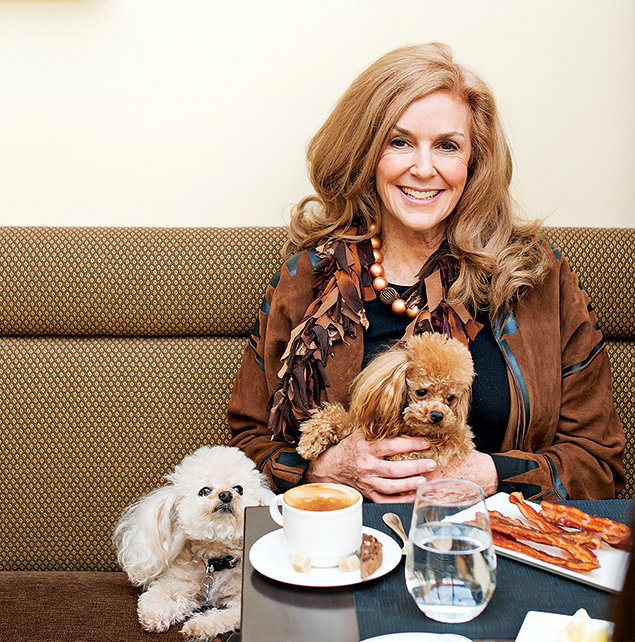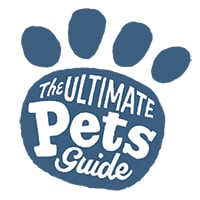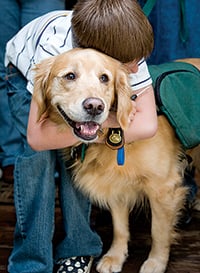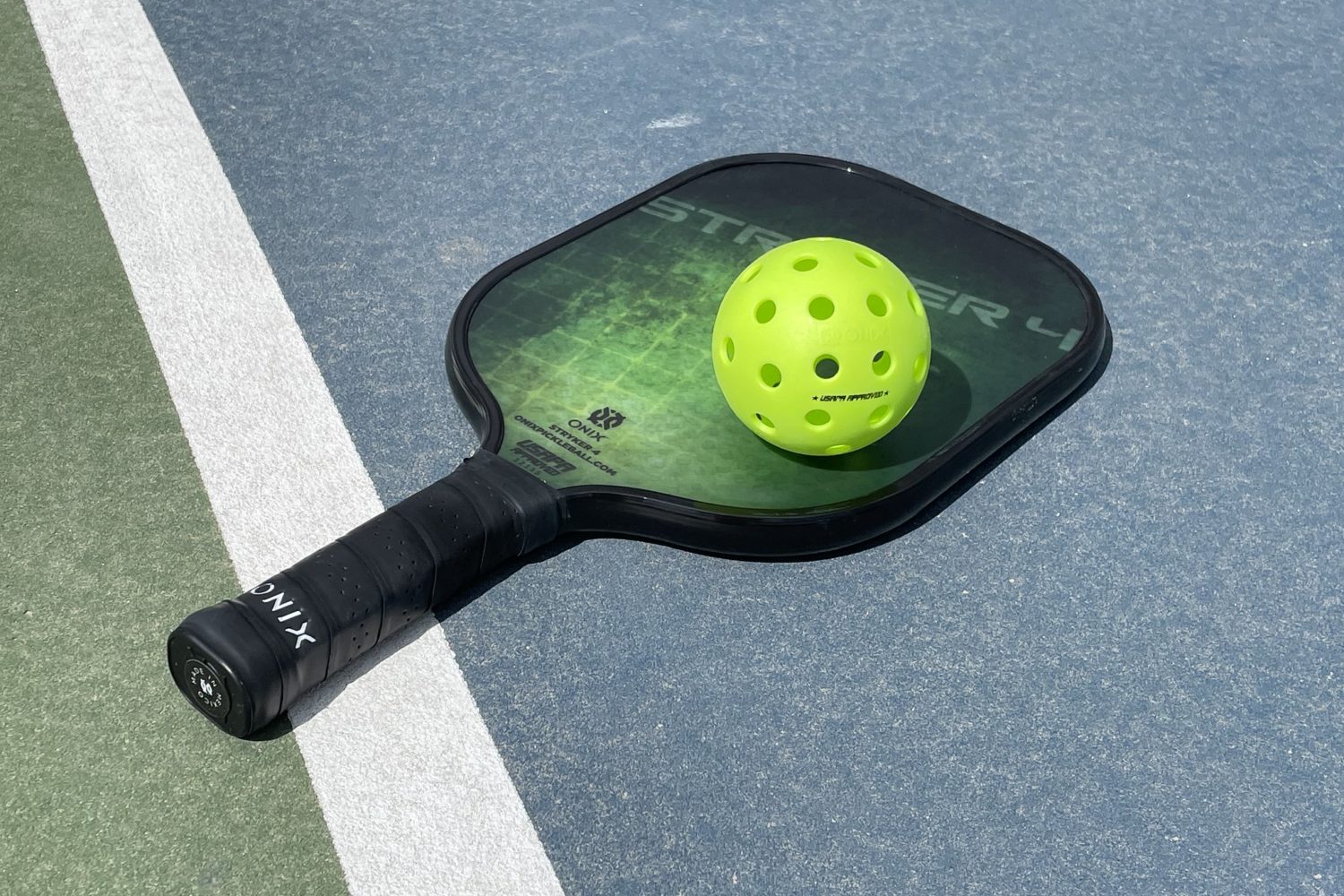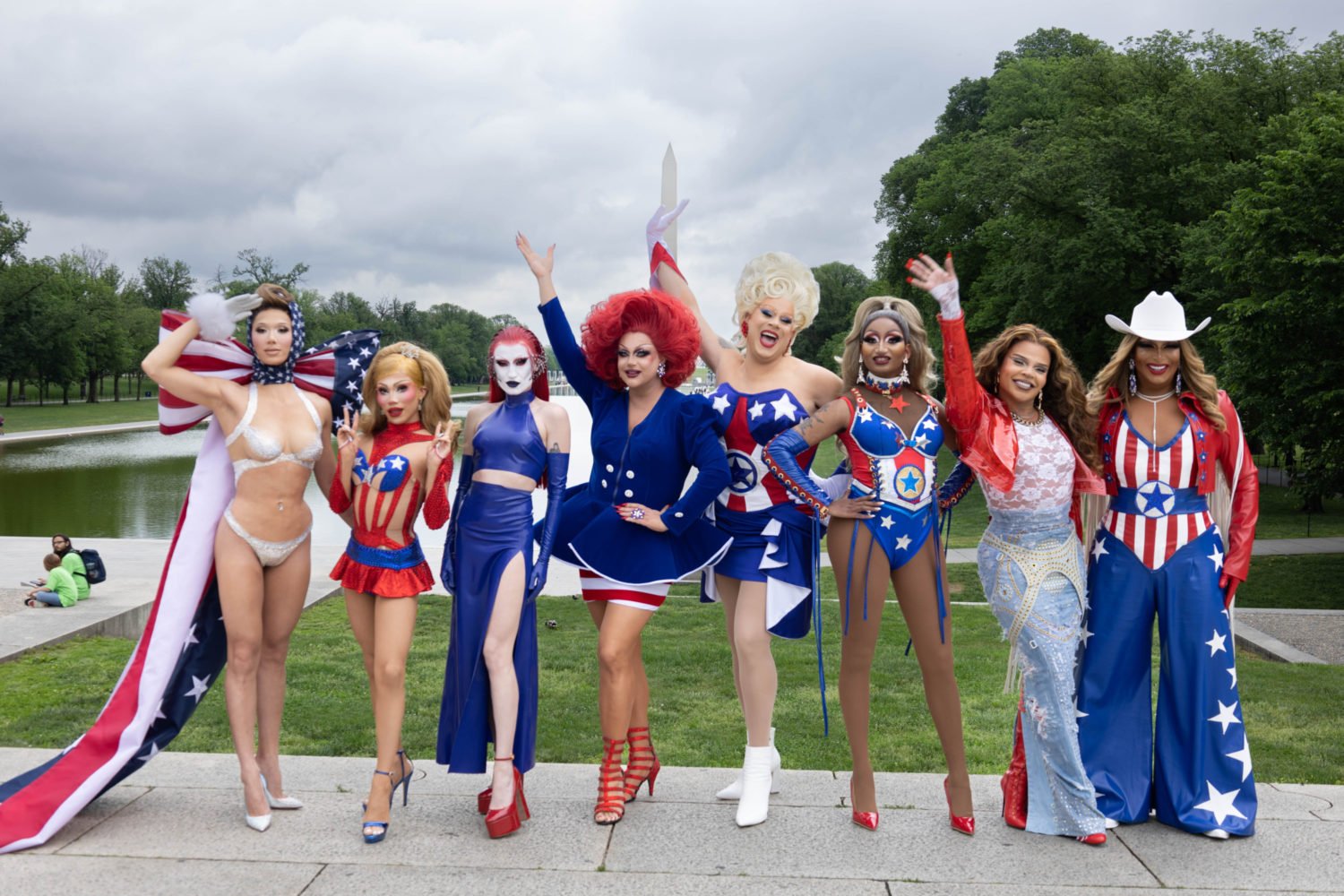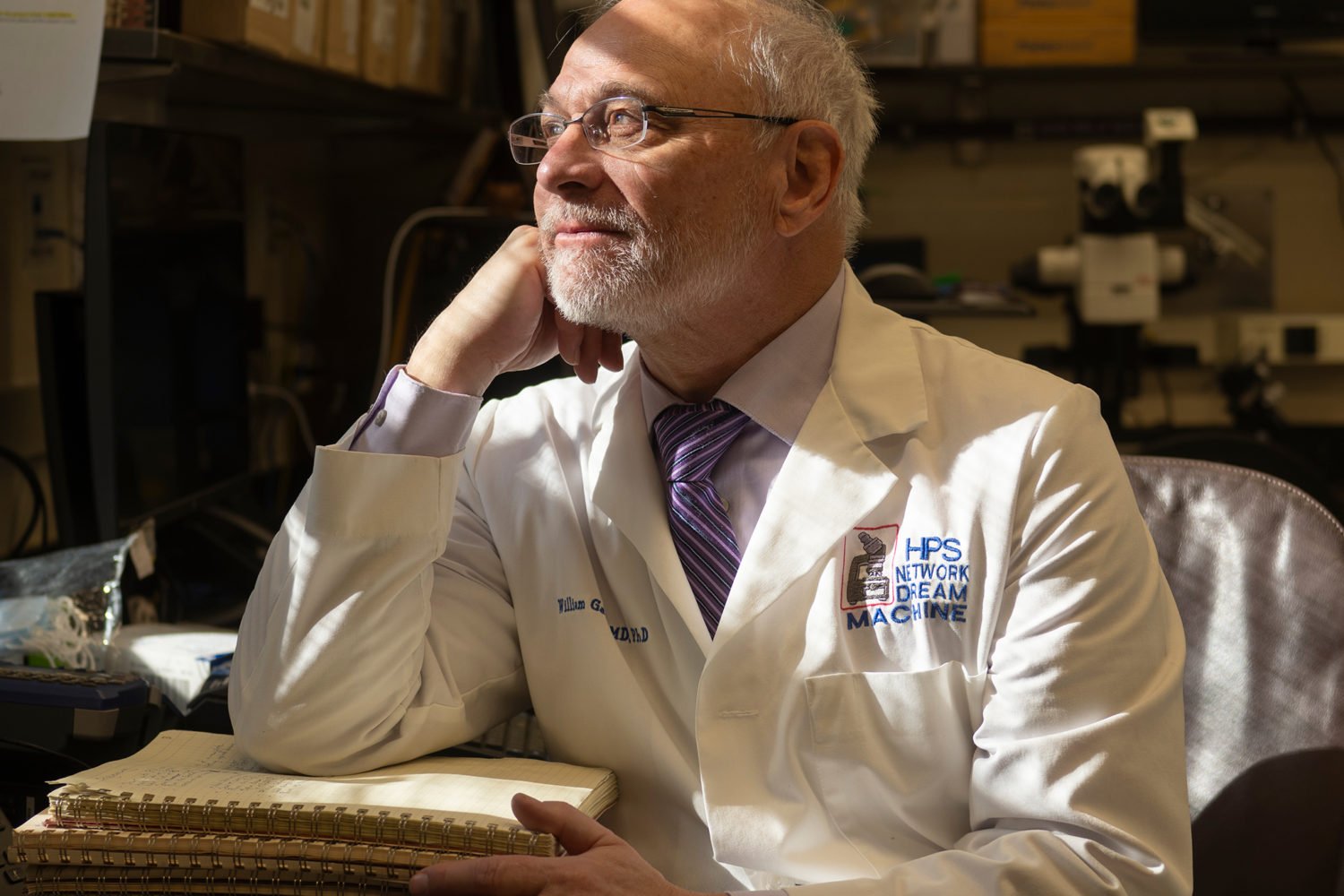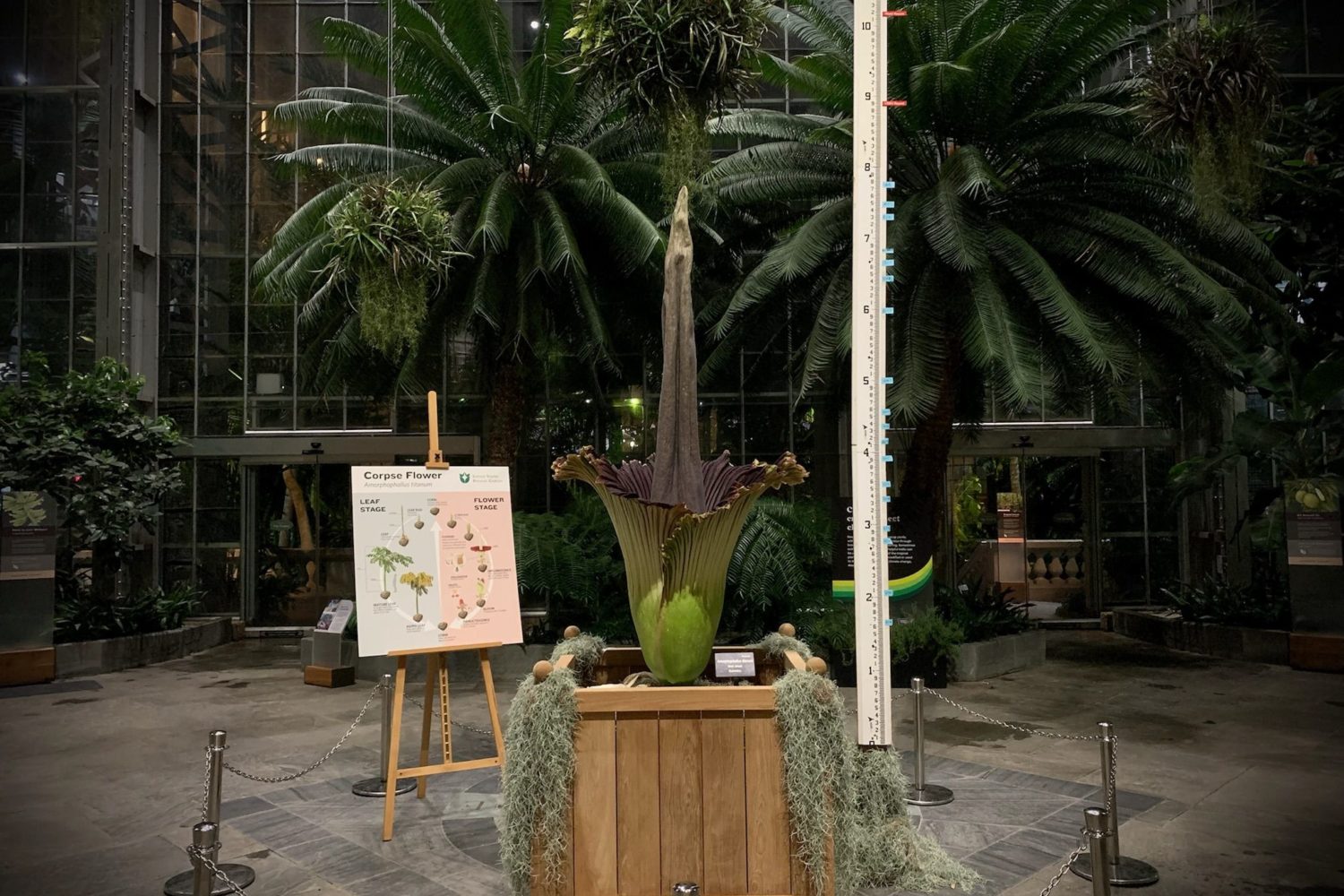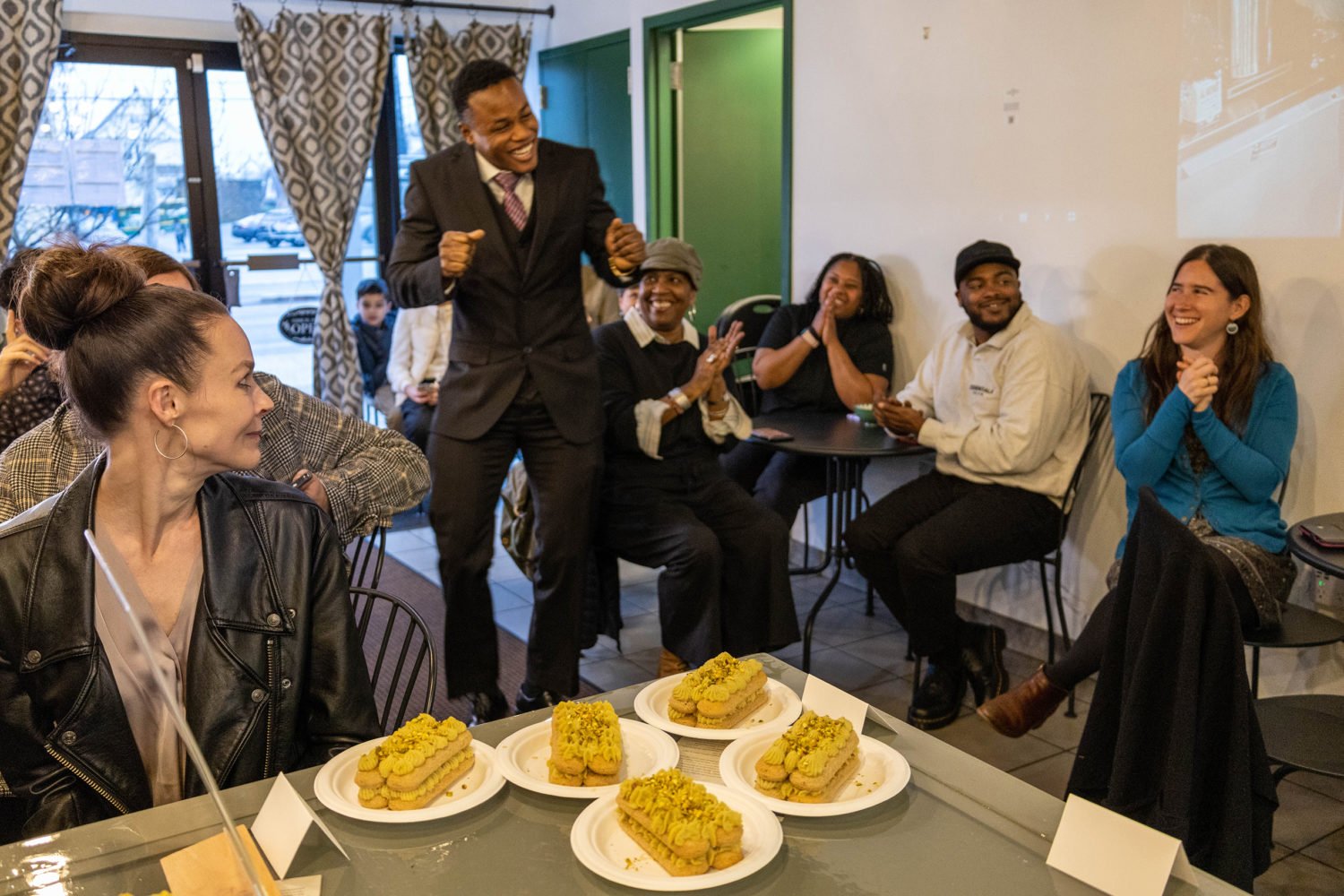On an unseasonably warm December day, Karen Feld breezes into the Palm in downtown DC with two toy poodles—one under her arm, the other at her feet. Wearing leopard-print sneakers and a necklace of beads that look like gold jawbreakers, she sits at a corner table, plopping Campari into a roomy black bag on the floor and setting Bellini on her knee.
A waitress approaches with menus and smiles when she sees the furry guests. “I love that you have the same color,” she says, referring to the reddish-colored dog.
Feld doesn’t miss a beat: “This is natural.”
She’s talking about her own hair. But she might just as well be remarking on the dogs’ presence in a high-end restaurant where they’re regulars, or on the fact that Campari’s portrait is painted on the wall, or that she’ll later offer the dogs her water glass and morsels from her sesame seared ahi-tuna salad. For Feld, it’s all natural.
Over the last 4½ decades, as she has worked as a journalist covering politics and parties, the Washington native and estranged member of the family that owns the Ringling Bros. circus has mothered and pampered seven toy poodles. Campari and Bellini are the current representatives of this distinguished line, members of which have attended White House dinners, the Kennedy Center Honors, and Broadway shows and have snuggled with Kevin Spacey and Joan Rivers, among other celebs.
The dogs boast their own wardrobes. Feld buys them real grass to use on her Upper East Side balcony when they’re in New York. When a dog dies, she sits shiva—the Jewish tradition she would follow for any other relative.
“I call them my kids,” she says. “I treat them as I would a person.”
Plenty of pet owners can at least understand that part, because lots of them consider their animals beloved members of the family. But just about everything else about Feld and her poodles shows a detachment from the rest of modern-day dog culture. Which might very well be the point.
“It’s not that unusual, especially among the wealthy and elite,” to have a relationship with dogs that distances people from the rest of society, says James Serpell, a professor of animal welfare at the University of Pennsylvania. Unlike, say, Barack Obama, who jokes about housebreaking Sunny and walking Bo to appear like a regular guy, Feld seems to use her poodles to nurture an image more akin to nobility.
She fits an archetype that has endured throughout history. King Charles II notoriously wandered around his palace with a small army of spaniels who were said to defecate indoors and bark during royal ceremonies. Mary, Queen of Scots, went to the gallows with one of her little dogs hidden under her dress. A few centuries more recently, in 2007, hotel heiress Leona Helmsley willed $12 million to a Maltese named Trouble.
“It becomes part of their persona, almost an extension of them,” Serpell says. One explanation is that people with money and status often have more reason to distrust the humans around them, so pets become their closest confidants. Still, Serpell notes that when the relationship is so much about the person, it’s not always good for the animal.
There are, of course, real benefits to a strong human/animal bond. Not only has our affection for pets helped us learn more about their health and well-being, but we’ve also discovered more about what they can offer us in return, such as dogs’ ability to scent out cancer. Thomas Wise, chairman of the department of psychiatry at Inova Health System, considers animals a “pretty powerful agent without side effects. Drugs can lower anxiety,” he says, “but so can dogs.” Dr. Wise notes that in cities—given urbanites’ tendencies toward hectic lifestyles and isolation—relationships with pets can be especially treasured.
Feld would agree. She says that of all her dogs, she’s most connected to Campari and Bellini—five and three pounds, respectively—because they’re service dogs who help her with medical conditions. She says the animals have been “homeschooled” and are not formally trained. (See sidebar). They occasionally wear service vests—and cashmere-lined raincoats—and she carries medical documentation as proof of what she calls her “hidden disabilities.” Feld says the dogs sense seizures before they occur and alert her to posttraumatic-stress triggers, and that her susceptibility to both conditions stems from a number of causes, including past abuse, car accidents, and a benign brain tumor.
That may be, though it’s not as if the dogs’ non-service-animal predecessors weren’t spoiled. But if you’re thinking of questioning Campari’s and Bellini’s status as service dogs, tread lightly.
When the Palm denied Washingtonian’s request to photograph Feld with the poodles—because, you know, some customers might not love the sight of dogs at the table—she decried the injustice as a violation of the Americans With Disabilities Act (ADA). “I will pursue the ADA discrimination since that is what I feel strongly about,” she fired off in an e-mail. “The Palm marketing team, whomever they are, won’t know what hit them.”
Though the ADA doesn’t include any language about professional photo shoots, when it comes to spoiling her dogs Feld makes no apologies. She has hosted puppy showers and birthday parties—including one for Campari at the Fairmont’s Colonnade Restaurant, with a fire-hydrant ice sculpture and a pianist playing canine-inspired tunes. The dogs keep her schedule (late to bed, late to rise) and join her for summers in rural Maine, where she named her house Poodlewood and her boat Poodle Jumper. In April, she plans to open a gallery on the Portland waterfront where she’ll sell her own poodle sculptures.
Feld calls her dogs the “family that I never had.” Although she has never married, she has been in long relationships. But, not surprisingly, the dogs always come first: “They are the loves of my life.”

